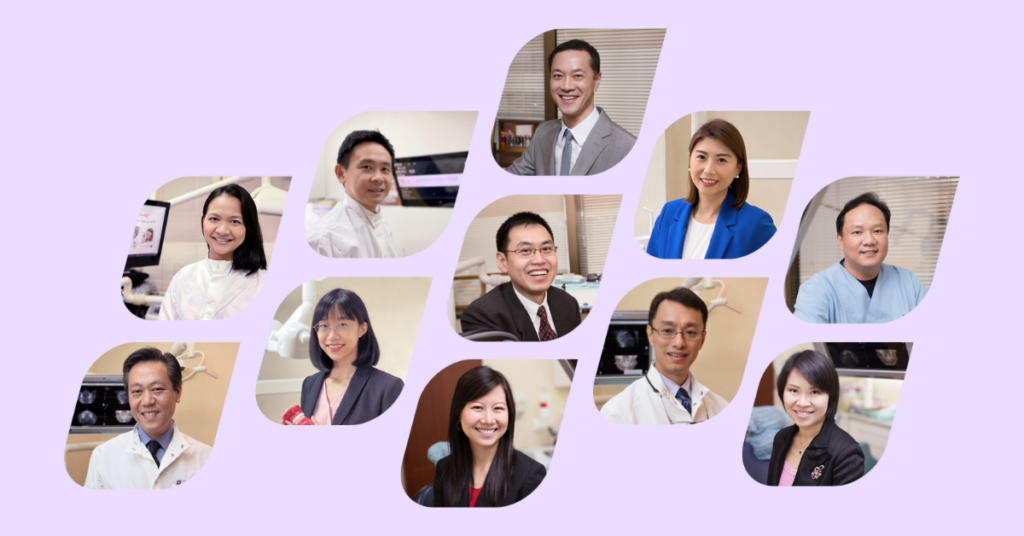
Dentistry, like medicine, has practitioners who are general dentists and dental specialists.
After graduating with a basic degree in dentistry (Bachelor of Dental Surgery (BDS)), a dentist who is pursuing a specialty qualification would spend an average of another three years undergoing intensive training within their specialty area of practice. After that, they would need to take a specialty examination to be recognised and certified by the relevant specialty boards such as the Dental Specialists Accreditation Board (Singapore), American Board of Prosthodontics, the Royal College of Dental Surgeons (Edinburgh), and other similar bodies.
In Singapore, there are currently seven specialty areas of dentistry, namely:
- Prosthodontics (replacing missing teeth)
- Orthodontics (straightening teeth)
- Periodontics (gum treatment and surgery)
- Oral & Maxillofacial Surgery (oral and jaw surgery)
- Paedodontics (children’s dentistry)
- Endodontics (root canal treatment)
- Dental Public Health
1. Complex dental procedures are handled comfortably and efficiently
As dental specialists undergo intensive training and spend significant clinical time performing specialised dental procedures, they are more experienced in certain procedures and can manage complex cases effectively and confidently.
Complex dental procedures are procedures that involve a certain expertise, coordination of different specialists or that require multiple visits. Examples include removing a wisdom tooth near a nerve, gum treatment for advanced stages of gum disease, braces treatment for a young child, complete mouth restoration for patients with no teeth and dental treatment for patients with medical complications.
One of the notable cases that Dr Steven Soo treated was an elderly patient who had one side of her body impaired due to a stroke. Her dentures no longer fit, and she could not enjoy any soft food. With the patient’s limited movements being a challenging constraint, Dr Soo carried out all the necessary procedures with patience and empathy. The smooth and comfortable experience also gave the patient’s husband, who suffers from weak bone structure, the confidence to have a new set of dentures. Both patients can eat much better now.
Dental specialists are also more likely to be familiar with “surprises” that may arise during the procedures and be able to address them effectively. Patients can enjoy peace of mind knowing that they are in safe hands throughout the entire process.
Read more: Re-building a jaw… and restoring a life
2. Receive treatment that is scientifically backed and up-to-date
As the dental community is relatively niche, most specialists are involved in teaching and sharing knowledge with their peers. With continual dental research and education, they can keep up with the current trends, methods and technologies in dentistry.
Most of the dental team at Specialist Dental Group are actively teaching and sharing in dental schools such as the National University of Singapore and the University of Hong Kong. Such interaction helps to rejuvenate and reinforce the continuous learning of our specialists, translating to better treatment recommendations for patients.
3. Seek a second opinion to clear your doubts
If you are unsure about your dental condition or diagnosis, consulting with a specialist may provide you with a second opinion and treatment plan. Even if these are similar to your primary care team, you can enjoy greater confidence that you have been diagnosed correctly and have chosen the right treatment for your condition.
When considering any dental procedure, it is crucial to have peace of mind that you are in good hands and have found the right person to resolve your dental issue.





